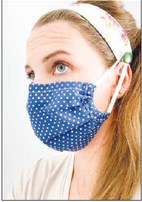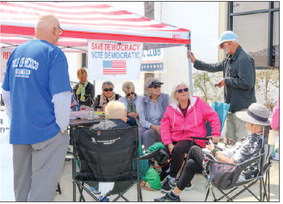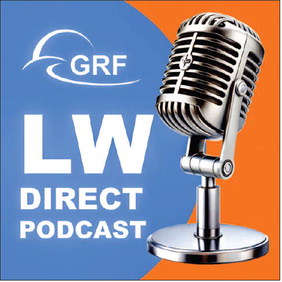COVID-19: It’s a Personal Responsibility


by Eloy Gomez
GRF emergency/safety coordinator
The COVID-19 pandemic has created challenges in our everyday lives. As we each do our part to help slow the spread of coronavirus disease, we look to the helpers all around us and wonder how we too could do more.
Everyone Has a Part
We all have a part to play in helping resolve this crisis. First, we must follow the practices recommended by the Centers for Disease Control and Prevention (CDC) to combat the spread of the virus.
This means maintaining a social distance of six feet whenever possible when you must go out; washing your hands often for at least 20 seconds with soap and warm water or using hand sanitizer; avoiding touching your eyes, nose or mouth with unwashed hands; and covering your mouth and nose with face mask, and what’s even harder, we must stop socializing in person.
No At-Home Gatherings
This includes stopping all in-person gatherings in your units to hold card games, book clubs or other meetings. Only socialize with members of your immediate household.
There are currently no vaccines to prevent or drugs to treat COVID- 19 approved by the U.S. Food and Drug Administration and with the number of infected people increasing on a daily basis, Leisure World Shareholders must take COVID-19, pandemic illness caused by a coronavirus, seriously.
Best Prevention is to Avoid Exposure The best way to prevent illness is to avoid being exposed (or exposing others) to this virus. We are calling on every shareholder to do his or her part to stop the spread of COVID-19.
To that end, the Golden Rain Foundation has has covered all public water drinking fountains throughout the community.
In addition, there has been an increase in the use of face shields without face masks. The CDC does not recommend the use of face shields for normal everyday activity or as a substitute for cloth face coverings. This is because face shields are designed to protect people from liquid splashes but may not offer much protection from the respiratory particles, which are the primary mode of transmission of COVID-19. Disposable face shields should only be worn for a single use. Reusable face shields should be cleaned and disinfected after each use The GRF recommends that people who wear face shields should also wear face masks that cover their nose and mouth.
It’s true that face masks aren’t always comfortable. Just ask the nurses and health care workers who’ve been wearing them for years. Face masks can fog up glasses, make it difficult to breathe and even cause painful friction behind our ears. There are solutions to make wearing masks more comfortable.
To avoid fogged glasses, make sure masks fit well to prevent your exhaled breath from reaching your glasses and misting them up. Try placing a a folded tissue between your mouth and the mask. The tissue will absorb the warm, moist air, preventing it from reaching your glasses. Also, make sure the top of your mask is tight and the bottom looser, to help direct your exhaled breath away from your eyes.
As for behind-the-ear friction, try switching to a tie-back mask, which won’t pull at the backs of your ears.
Or try a headbands, caps and strap extensions made with buttons that are placed just behind your ears, then slide your face mask’s elastic ear straps over the buttons, alleviating the pressure that normally would be applied behind your ears.
Additionally, there are Shooks and plastic clips that you can place at the back of your head and hook your straps onto. There’s even one with a hole for your ponytail. You can make your own headbands or buy them from a variety of sellers, including at Etsy.com for about $8-12 each.



